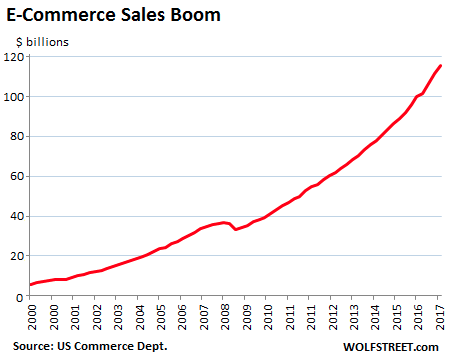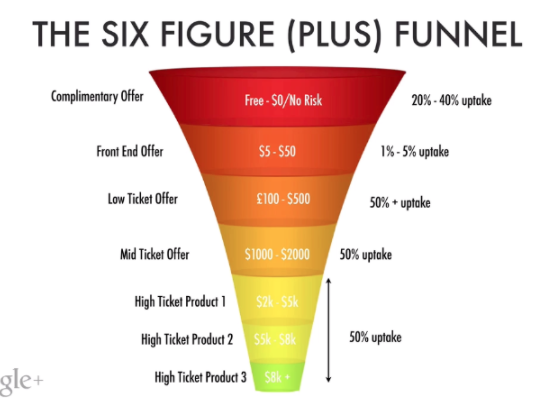What exactly is a repeatable and scalable business model? A repeatable business model can be copied by anyone and used to generate profit. Chain stores/restaurants are examples of repeatable business models. McDonald’s, for example is a repeatable business model. Anyone can purchase a franchise licence to operate a McDonalds restaurant. It’s a proven business model. Not everyone can afford to do so, but it’s just one example.

A scalable business model can be scaled up and has a product or service which can be sold globally. Scalable business models are often entrepreneurial endeavours in which the business owner has created some kind of unique product. If you’re ever seen the popular UK TV show Dragon’s Den, you’ll understand that most “dragons” are looking for a business they can sell globally and scale up.
Small scale business models can’t be scaled. A local store, for example is only useful locally. Whereas a product which has global appeal can be scaled to a global audience.
Repeatable And Scalable Business Model
A repeatable and scalable business model is something which anyone can use to generate profit. Chains and franchises are typically both scalable and repeatable, hence why people are prepared to pay large fees for a franchise. But large franchise fees can often mean many are unable to use such business models.

Affiliate Marketing
One such arena which is much more accessible to the masses is the affiliate marketing business model. With affiliate marketing, you can sell a product online and earn a commission. This is a scalable business model because you can sell that same product globally, in many cases, and anyone can join an affiliate program to use this model. However, if you’ve spent any time doing affiliate marketing you’ll know that it isn’t all plain sailing! The main problem is in finding a repeatable business model you can scale up.
With the cheaper affiliate products you might find on Amazon, for example, you only earn 1-11% commission on a sale. See affiliate marketing business models. This means the margin is too small to use paid marketing (which is scalable). You’re therefore stuck with trying to get traffic to your products through slower, laborious tactics such as blogging and organic marketing. Although this tactic can be built upon over the longer term, and can eventually increase your sales exponentially; it’s still slow and less scalable than through using paid marketing tactics.
As a repeatable business model, organic traffic generation isn’t great. Most people aren’t prepared to work for the necessary time it takes to make organic marketing work. Plus, content creation isn’t for everyone either as it takes a bit of creative imagination to do. So what’s the answer when using the affiliate marketing business model?
Repeatable And Scalable Business Model
The answer is to use affiliate marketing but to use a different business model than is offered by the usual suspects. eBay, Amazon and most of the physical products you can sell as an affiliate won’t pay you enough to use paid marketing. Or at least it’s much more difficult to use paid marketing and still come out with a profit.

However, there’s many other affiliate products you can find online. Digital products pay much more in the way of commissions – 40% and above in some cases. This gives you much larger commission margins to play with.
High ticket digital products offer larger commissions still. Some of which offer commissions of $1000-$8000 per sale! With products like this you can much more easily use paid marketing and come out on top. Subscription products too offer a better way to earn with affiliate marketing. With a subscription product, you can earn ongoing commissions for your previous sales. This compounds over time to generate larger earnings more easily. Compare this to selling low value physical products and you’ll have a much easier time with subscriptions.
The same work can produce much better results if you choose your affiliate business model wisely.
The Best Affiliate Model For Scalability
A product on Amazon sells for $100. You make 5% commission when you refer the sale, (or $5). To sell that product in an easily scalable way, you’ll need to spend less than $5 on advertising to make the sale. That’s a very tight margin of error. Most new affiliates simply won’t be able to repeat that, and even experts may struggle too!
However, using a high ticket product, you can sell one product and earn $1000 in commissions. So you only need to spend less than $1000 on your marketing in order to have a profitable advertising strategy which is scalable. That’s much more room for testing and measuring a profitable campaign than the low value item.

A good affiliate business model has more than just the high ticket products going for it too. It also offers other income generating strategies to help you earn:
- Multi-tier commissions – earn from sales made by your referrals
- Subscription products – on-going commissions in the form of membership products
- A product range – a number of products you can earn from within a range which are automatically offered to your referrals (with a built in sales team closing sales on your behalf).
The SFM Digital Business system offers multiple earning strategies within the affiliate business model. What this means is that you can use paid marketing to generate sales, which is imminently more scalable than other marketing strategies like blogging, or using other free strategies.